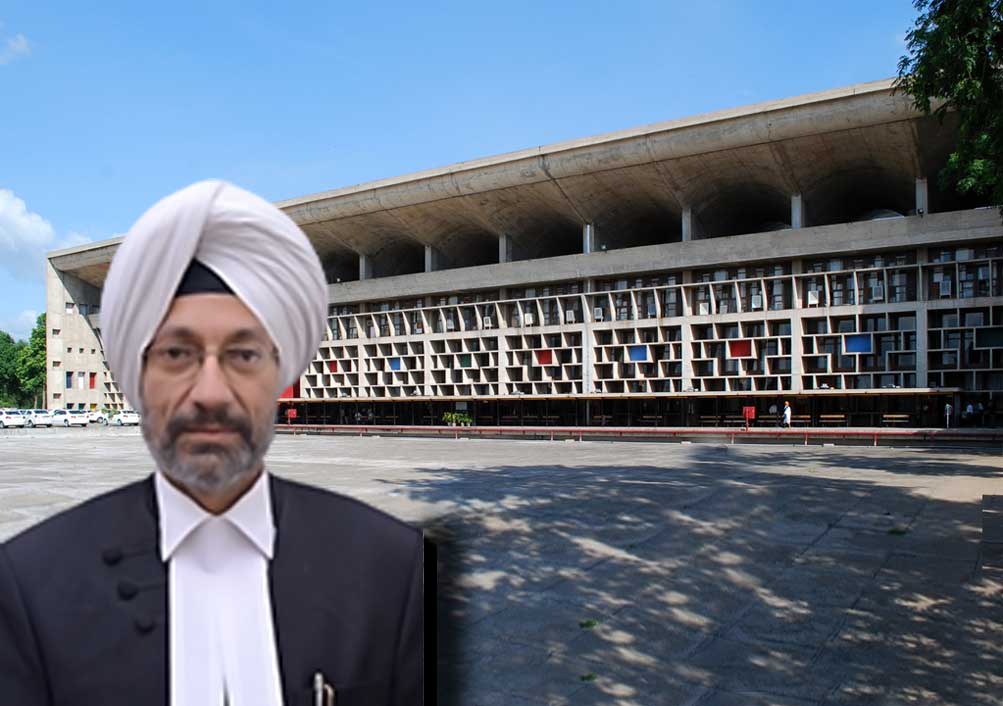In CRR-2010-2022-PUNJ HC- In terms of Sec.147 of Negotiable Instruments Act r/w Sec.320 CrPC, offence u/s 138 of N.I. Act can be compounded on account of fact that settlement & mutual compromise has been effected between parties: P&H HC
Justice Jasjit Singh Bedi [10-04-2023]

Read Order: JASPAL SINGH v s STATE OF PUNJAB & ANOTHER
LE Correspondent
Chandigarh, April 15, 2023: The Punjab and Haryana High Court has acquitted the petitioner-accused of the charges under Section 138 of the Negotiable Instruments Act in a case where the parties had voluntarily settled the disputes between themselves.
A Single-Judge Bench of Justice Jasjit Singh Bedi allowed the revision petition against the judgment passed by the Additional Sessions Judge, Shaheed Bhagat Singh Nagar.
The brief facts of the case were such that the second respondent-complainant was a Bank under the RBI duly incorporated under the Companies Act and was having its office at Rahon, Punjab.The complainant had authorised Harminder Pal Singh as the representative of the second respondent Bank and Sh. Harminder Pal.
In the course of business the respondent - complainant Bank granted a loan to the accused which was to be paid back by the accused in instalments. The accused in order to discharge his legal liability towards respondent -complainant Bank issued a cheque drawn on HDFC Bank.
The said cheque of the respondent -complainant was presented for encashment. However, the same was returned unpaid by the accused's bank due to insufficient funds in the bank account of the accused vide return memo dated February 20, 2015.
Resultantly, a legal notice dated March 13, 2015 was issued to the accused. However, since the accused failed to pay the cheque amount to the complainant-respondent within the statutory period, the complainant was constrained to file a complaint under Sections 138 of the Negotiable Instruments Act, 1881 in which the petitioner-accused was summoned to face the trial.
The evidence was led and ultimately, the accused was held guilty and accordingly, convicted for the offence punishable under Section 138 of the Negotiable Instruments Act, 1881 and sentenced to undergo rigorous imprisonment for a period of 2 years and the accused/petitioner was also ordered to pay an amount of Rs30,000 as compensation to respondent - complainant.
Aggrieved against the said judgment of conviction and order of sentence, the accused/petitioner preferred an appeal before the Additional Sessions Judge, which came to be dismissed.
Still aggrieved, the present revision petition was preferred by the accused/petitioner. During the pendency of the present criminal revision petition, a compromise was reached between the parties.
In view of the same, it was also mentioned, “It would be relevant to mention here that a reading of Section 147 of the Negotiable Instruments Act read with Section 320 Cr.P.C. would show that where a settlement has been effected, the offence under Section 138 of the Negotiable Instruments Act can be compounded on account of the fact that a mutual compromise has been effected between the parties.”
After considering the submissions of the parties, the Court referred to the judgment in Ramesh Chander Vs. State of Haryana and another. Further reliance was placed upon the judmgent in Vatsa Electronics Vs. Pala Ram & Anr, wherein it was held that once a settlement is being effected, then in terms of Section 147 of the Negotiable Instruments Act and Section 320 Cr.P.C., the accused ought to be acquitted as the offence stands compounded.
In view of the same, the Court stated that the admitted position was that the matter stands settled and the compromise/settlement between the parties was already on record. In pursuance of the same, the Court observed that it was a fit case for allowing the parties to compound the offence. Accordingly, the revision petition was allowed.
Sign up for our weekly newsletter to stay up to date on our product, events featured blog, special offer and all of the exciting things that take place here at Legitquest.




Add a Comment